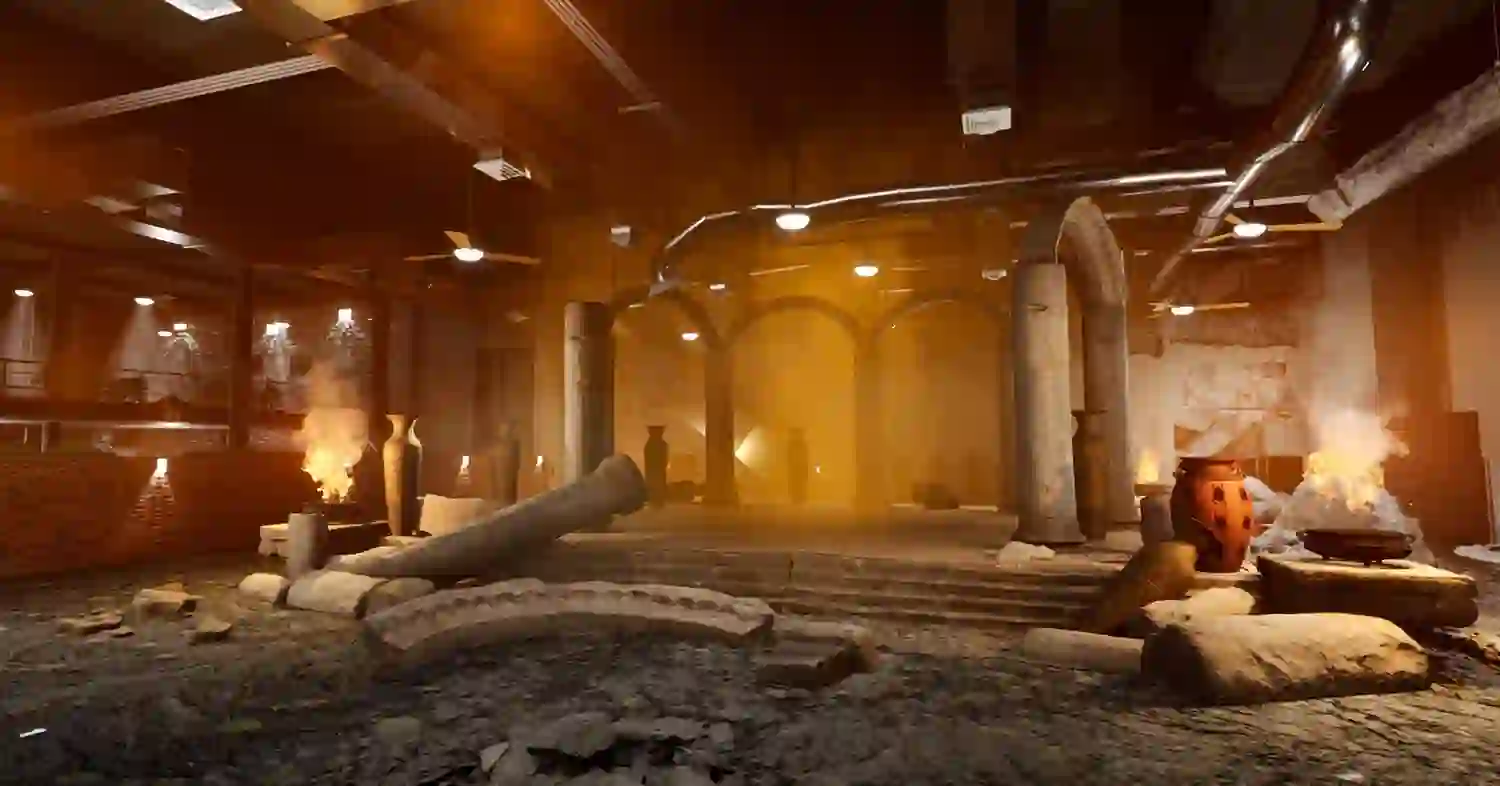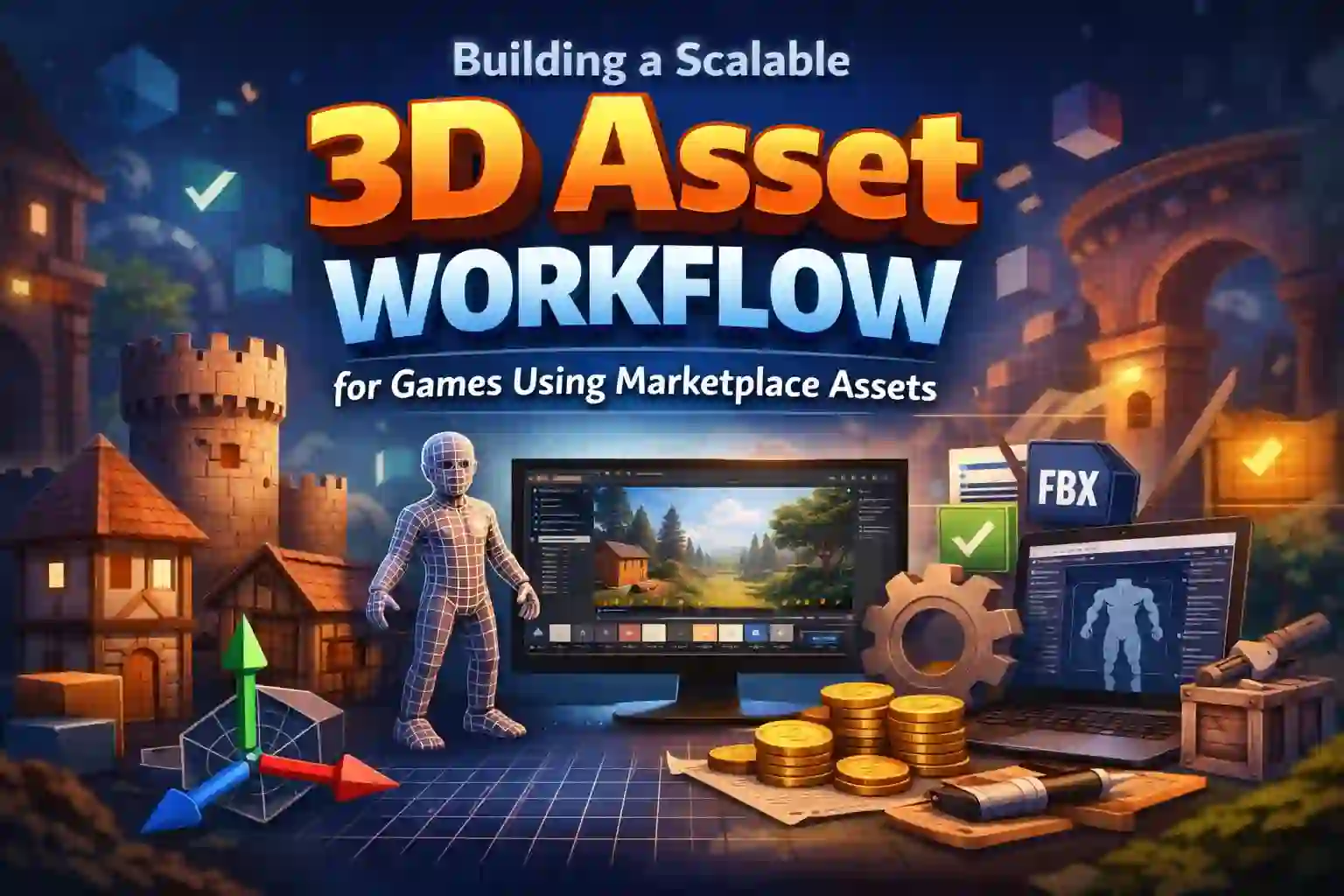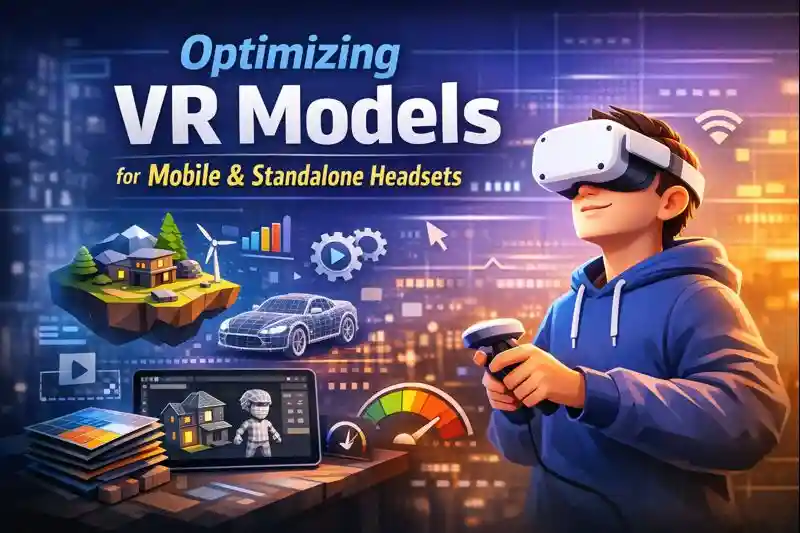AI-Powered Solutions for Freelance Game Developers
by Animatics Asset Store in Blog on August 8, 2025Freelance game developers face unique challenges. They juggle tight budgets, strict deadlines, and the need for high-quality assets. AI-powered solutions are changing the game. These tools help developers create stunning 3D models, textures, and animations with ease. They save time and money while boosting creativity. This article explores how AI tools empower freelance game developers to thrive in a competitive industry.
Rise of AI in Game Development
AI is transforming game development. It automates repetitive tasks and streamlines workflows. For freelance game developers, AI tools are a lifeline. They allow solo creators or small teams to compete with larger studios. According to a 2024 report, the global AI in gaming market is expected to reach $7.1 billion by 2027, growing at a CAGR of 22.7%. This growth highlights the increasing reliance on AI for game creation.
AI tools simplify complex processes. They generate 3D models, textures, and animations from simple text prompts or images. Freelancers no longer need advanced skills in 3D modeling software. These tools level the playing field. They make high-quality game assets accessible to everyone.
Why Freelance Game Developers Need AI
Freelance game developers often work alone or in small teams. They handle multiple roles, from coding to designing. Creating high-quality assets takes time and expertise. Traditional methods require expensive software and years of training. AI changes this.
AI-powered tools reduce the time spent on asset creation. For example, a 3D model that takes hours to craft manually can be generated in seconds with AI. This speed is crucial for freelancers meeting tight project deadlines. AI also cuts costs. Instead of hiring artists or buying pricey assets, developers use affordable AI platforms. These tools deliver professional-grade results without breaking the bank.
Top AI Tools for Freelance Game Developers
Several AI tools cater to freelance game developers. They focus on creating low-poly 3D assets, textures, and animations. Here are some standout solutions:
Text-to-3D Model Generators
Tools like Meshy and 3D AI Studio are game-changers. They turn text prompts into detailed 3D models in seconds. For instance, typing “low-poly medieval sword” generates a game-ready asset.
A 2025 review noted that Meshy’s latest version creates models 60% faster than its competitors. Freelancers can iterate quickly, testing ideas without spending hours modeling.
These tools also support image-to-3D conversion. Developers upload concept art, and the AI creates a 3D model. This feature is perfect for freelancers who sketch ideas but lack 3D modeling skills.
Low-Poly Asset Creation
Low-poly assets are popular in indie games. They are lightweight and run smoothly on various devices. Platforms like Animatics Asset Store offer high-quality low-poly 3D assets tailored for games.
For example, their Horror Mansion pack includes over 700 items, such as eerie furniture and spooky plants. These assets work seamlessly with tools like Rhino 3D and game engines like Unity and Unreal Engine. Freelancers can integrate them into projects without worrying about performance issues.
Animatics Asset Store stands out for its variety. Developers find assets for genres like horror, fantasy, and sci-fi. The store’s assets are optimized for quick rendering, which is ideal for freelancers building games for mobile or console platforms. A 2025 article highlighted that low-poly assets from such stores reduce game lag by up to 30% compared to high-poly models.
Animation and Rigging Tools
AI also simplifies animation. Tools like Ludo.ai and Sloyd AI offer rigging and animation features. They generate walk cycles or character movements from text prompts. For freelance game developers, this eliminates the need for complex animation software. Sloyd AI, for instance, allows parametric adjustments, letting developers tweak animations to fit their vision. A user review from 2025 praised Sloyd for cutting animation time by 50%.
Benefits of AI for Freelance Game Developers
AI tools bring multiple advantages. They boost productivity, reduce costs, and enhance creativity. Here’s how:
- Time Efficiency: AI generates assets in seconds, not hours. This lets freelancers focus on coding and storytelling.
- Cost Savings: Tools like Recraft AI are free or low-cost. They eliminate the need for expensive software or outsourced artists.
- Creative Freedom: AI supports experimentation. Developers can test multiple asset variations without starting from scratch.
- Accessibility: Even beginners can create professional assets. AI tools require minimal technical skills.
Challenges and Solutions
AI isn’t perfect. Some tools produce assets that need minor tweaks for professional use. For example, a 2025 study found that 20% of AI-generated models require cleanup for gaming. Freelancers can overcome this by using editing tools like Blender alongside AI platforms.
Another challenge is style consistency. Games need cohesive visuals. Platforms like Animatics Asset Store address this by offering themed asset packs. Developers can mix and match assets to maintain a unified look.
The Future of AI in Freelance Game Development
The future looks bright for freelance game developers. AI tools are becoming more precise and versatile. By 2026, experts predict that 80% of indie games will use AI-generated assets. Tools will integrate deeper with game engines, streamlining workflows further. Freelancers will create entire game worlds with a few clicks.
AI also fosters collaboration. Platforms like Itch.io allow developers to share AI-generated assets. This community-driven approach inspires creativity and reduces costs.
Conclusion
AI-powered solutions are revolutionizing game development for freelancers. They make high-quality assets accessible, affordable, and fast. Tools like Meshy, Sloyd AI, and Animatics Asset Store empower developers to create stunning low-poly 3D assets. These platforms save time and money while sparking creativity. As AI advances, freelance game developers will continue to thrive, building immersive games that rival big-budget titles.






